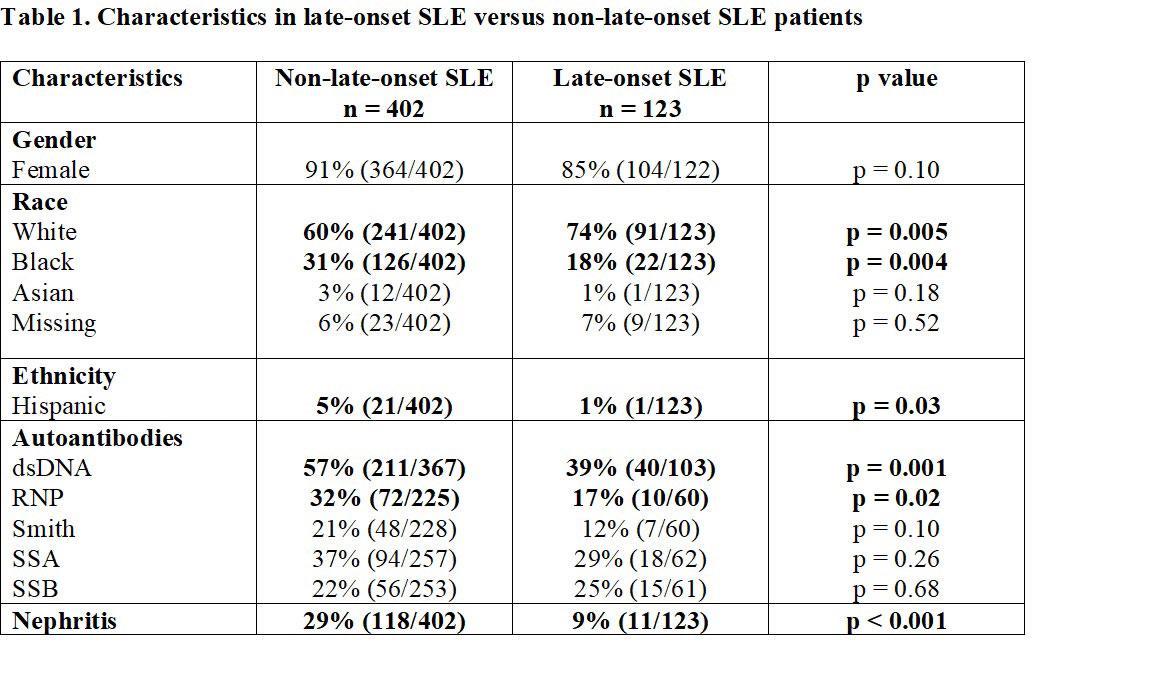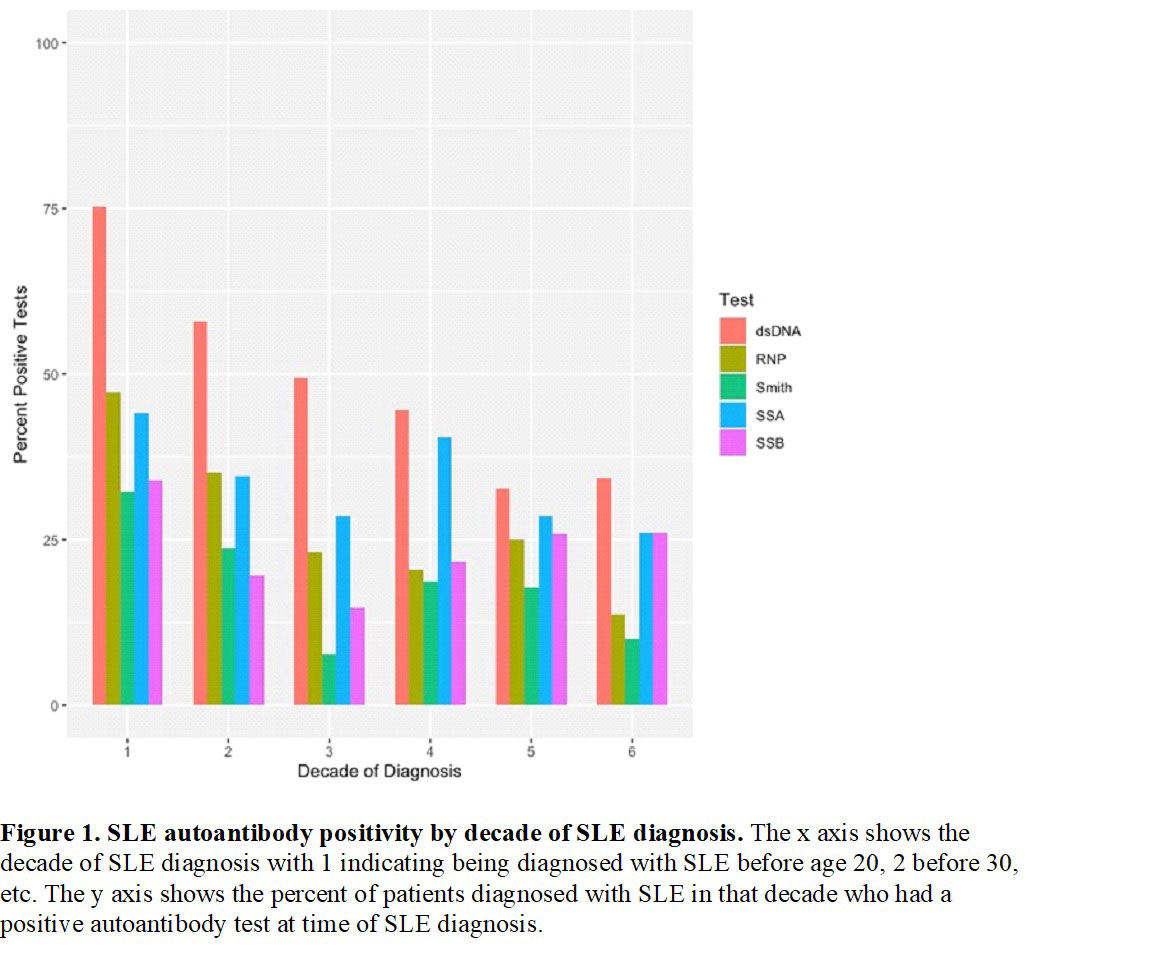Session Information
Date: Sunday, November 13, 2022
Title: SLE – Diagnosis, Manifestations, and Outcomes Poster II: Manifestations
Session Type: Poster Session C
Session Time: 1:00PM-3:00PM
Background/Purpose: Systemic lupus erythematosus (SLE) predominantly affects females of reproductive age but can affect patients later in life. Late-onset (LO)-SLE is defined as SLE diagnosed at age 50 years or later. Studies characterizing LO-SLE have been conflicting. It is unclear if LO patients have different disease presentations compared to non-late-onset (NLO) patients. Using a de-identified electronic health record (EHR), we assessed demographic, clinical presentation, and SLE autoantibodies in LO vs. NLO-SLE patients.
Methods: We assembled a cohort of SLE patients using a validated and published algorithm that requires ≥ 4 SLE ICD-9 codes and a positive ANA ≥ 1:160. We performed chart review on all SLE patients to ensure diagnosis by a rheumatologist. Age at SLE diagnosis was defined as age at first SLE billing code or age at SLE diagnosis documented in notes, whichever came first. We compared demographics and presence of SLE nephritis, defined by renal pathology or clinical diagnosis by rheumatology or nephrology, in LO-SLE (SLE diagnosis at ≥ 50 years) vs. NLO-SLE (SLE diagnosis < 50 years). We also compared SLE autoantibodies (dsDNA, Smith, RNP, SSA, SSB) in LO vs. NLO patients. Autoantibody status was defined as positive if ever positive.
Results: We identified 123 LO and 402 NLO-SLE patients. Both LO and NLO patients were predominantly female (85% vs. 91%, p = 0.10, Table 1). LO patients were more likely to be White vs. NLO patients (74% vs. 60%, p = 0.005). LO patients were less likely to be of Hispanic ethnicity vs. NLO patients (1% vs. 5%, p = 0.03). Compared to NLO patients, LO patients were less likely to have positive dsDNA (39% vs. 57%, p = 0.001) and RNP (17% vs. 32%, p = 0.02, Table 1). Rates of positive Smith, SSA, and SSB were all similar in LO vs. NLO-SLE patients. When analyzed by decade of age at SLE diagnosis, autoantibody positivity declined with increasing age (Figure 1). LO vs. NLO patients were less likely to develop SLE nephritis (9% vs. 29%, p < 0.001).
Conclusion: LO-SLE patients were less racially and ethnically diverse compared to NLO-SLE patients. LO patients were less likely to have positive SLE autoantibodies and nephritis. With less SLE-specific autoantibodies, LO-SLE patients can pose a diagnostic challenge. Understanding how age impacts SLE disease presentation could help reduce diagnostic delays for SLE patients.
To cite this abstract in AMA style:
Adeogun G, Camai A, Green S, Barnado A. Patients with Late-onset-Systemic Lupus Erythematosus Have Different Disease Presentations [abstract]. Arthritis Rheumatol. 2022; 74 (suppl 9). https://acrabstracts.org/abstract/patients-with-late-onset-systemic-lupus-erythematosus-have-different-disease-presentations/. Accessed .« Back to ACR Convergence 2022
ACR Meeting Abstracts - https://acrabstracts.org/abstract/patients-with-late-onset-systemic-lupus-erythematosus-have-different-disease-presentations/


